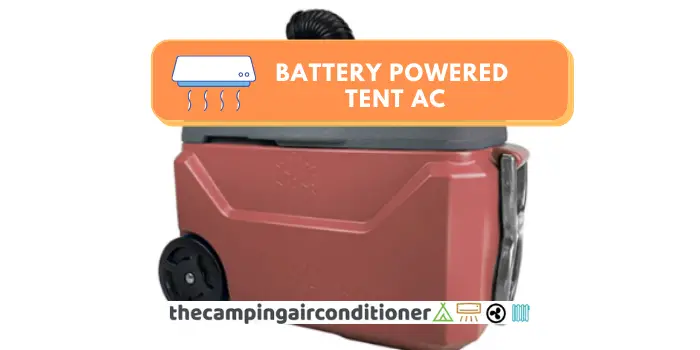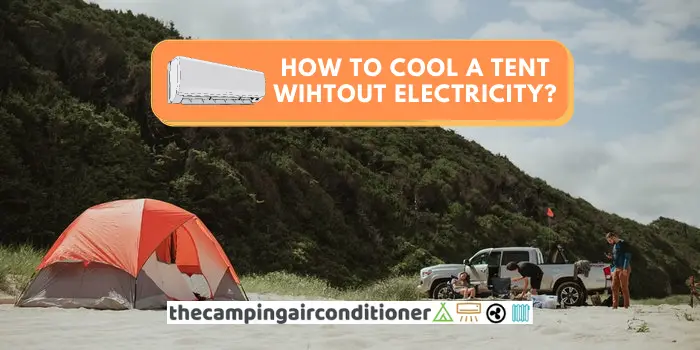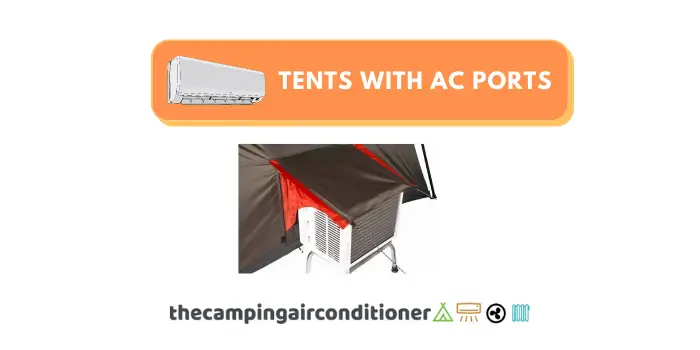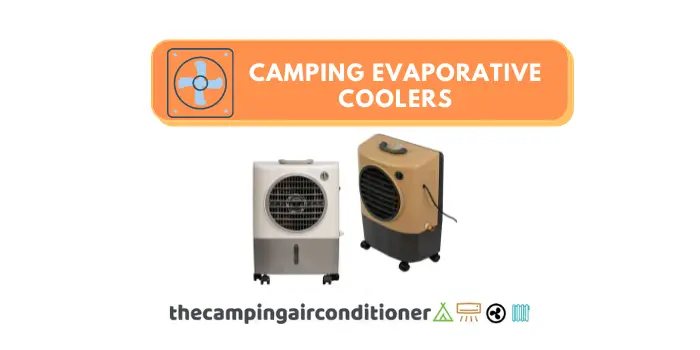We understand that getting your first tent air conditioner might be a novelty. With so many models and options, which one should you pick? What size (BTU) do you need for a tent?
We have drafted this article to help you – to simplify the calculations, we created the campingairconditioner.com cooling rule, with the following principles:
- Tents with adequate insulation will need at least 4 BTU per cubic feet.
- Tents without proper insulation will require at least 5 BTU per cubic feet (25% extra power required)
- If your tent is exposed to the sunlight and has no insulation, we recommend at least 6 BTU per cubic feet (50% extra power required)
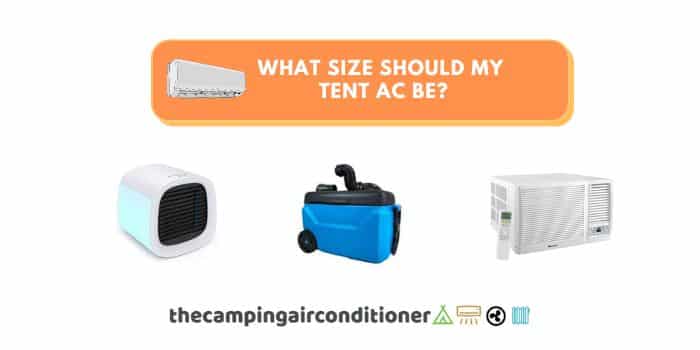
Note: these ratios are indicative only and were calculate based on different cooling references, such as: BTU Calculator, Learnmetrics.com. The exact amount of BTUs required will depend on tent shape, material, insulation, weather conditions, number of campers and many other variables.
How to calculate my tent area and volume?
These calculations are easy – you only need your tent dimensions:
- Length
- Width
- Height
With them, you calculate your tent floor are with the following formula.
Tent Floor Area = Length x Width
To find tent’s volume, you need to multiply the floor area by its height.
Tent Volume = Floor Area x Height
NOTE: All the dimensions should be in foot/feet.
Let’s use the CORE 12-person cabin model as a practical example.
Its dimensions are:
- Floor size – 11 feet x 16 feet –> Floor Area = 176 square feet
- Height – 86 inch (1 inch = 0.083 foot) = 7.16 feet
The tent’s volume is calculated according to the formula below, and it is 1,260.16 cubic feet. Therefore, for this tent, you would need the following AC output:
- CORE 12-person cabin with insulation – approximately 5040 Btu
- CORE 12-person cabin without insulation – around 6300 Btu
- CORE 12-person cabin without insulation and exposed to the sun – about 6930 Btu
Tent Air Conditioner output (BTU) x Tent Size
We have picked four different tent models to extend the camping air conditioner cooling rule to establish an indicative relationship between tent size and required AC output.
- Small tent – Tent reference: Pacific Pass 2 Person Family Dome Tent (2 people)
- Medium Tent – Tent reference: Coleman 4-Person Dome Tent (4 people)
- Large Tent – Tent reference: Coleman 8-Person Tent for Camping (8 people)
- Family Tent – Tent reference: CORE 12-person cabin (12 people)
According to these calculations and tent models, we established the following metrics for each standard size:
- Small tents have approximately 200 cubic feet
- Medium tents have approximately 350 cubic feet
- Large tents have approximately 700 cubic feet
- Family Tents have approximately 1250 cubic feet
| Size | Volume (cubic feet) | Insulated Tent | No insulation (1.25X) | No insulation and sun exposure (1.5X) |
| Small Tents | 200 | 800 BTU | 1000 BTU | 1200 BTU |
| Medium Tents | 350 | 1400 BTU | 1750 BTU | 2100 BTU |
| Large Tents | 700 | 2800 BTU | 3500 BTU | 4200 BTU |
| Family Tents | 1250 | 5000 BTU | 6250 BTU | 7500 BTU |
Tent air Conditioner - Recommendations
Based on the numbers shown above and models available in the market, we handpicked some models for you:
- Small tents – Evapolar Evachill (see our detailed review of this device)
- Medium Tents – Eenour Portable Air Conditioner (see our detailed review of this device)
- Large Tents (window AC unit) – LG 6,000 BTU 115V Window Air Conditioner with Remote Control
For more details on how to use an AC in a tent, read this article.
FAQ
How to cool down my tent without electricity?
Among several measures, we suggest taking into consideration the following items:
- Choose the adequate tent fabric.
- Choose the best location to pitch your tent
- Set your tent up at the right time
- Use battery and solar-powered devices
- Use a reflective blanket.
- Cool your body down
- Watch for tent ventilation.
- Forget about your sleeping bag
- Build a DIY Tent Air Conditioner
What are the best tents for hot weather?
We reviewed couple of options available in the market and suggest you checking the following models:
- Core 12 Person Extra Large Cabin Tent – Best option for family camping
- Kodiak Canvas flex-blow – Best canvas tent option (4,6, and 8 people)
- Hyke & Byke Zion Hiking & Backpacking Tent – Best option for backpackers and hikers
- Coleman Sundome Tent – Best Budget-Friendly option
- TETON Sports Altos Tent – Best lightweight option (1-person tent)
- Eackrola 2/4 person instant pop up tent – Best pop up tent option for hot weather
- Wenzel Klondike 8 Person (w/ screen room) – Best Option with screen room
- Ozark Trail 16×16-Feet 12-Person Instant Tent – Best option with AC port
Which tent fabric is the best for insulation?
Canvas tents tend to offer better insulation and have outstanding breathability.
Is there a best color for tents?
Overall, light colors will perform better in hot conditions given they retain less heat (you can read a detailed guide on how to choose your tent color)
Conclusion
We hope this helps you on choosing the most suitable tent air conditioner for you.
Should you have any queries, please do not hesitate to contact us.








